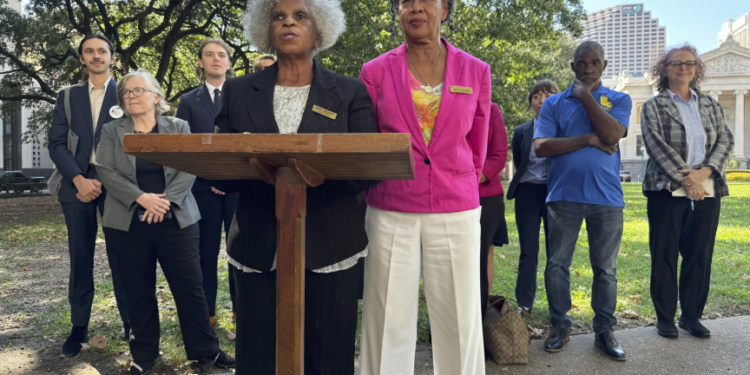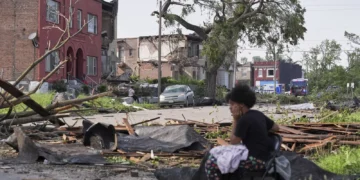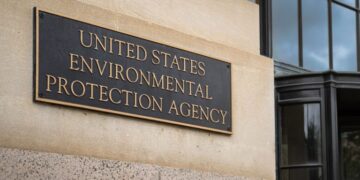Oct 7, 2024 Story by: Editor
A federal appellate court is currently reviewing a civil rights lawsuit accusing a parish in southern Louisiana of implementing racially discriminatory land-use policies by allowing polluting industries to be placed in majority-Black communities.
On Monday, the Fifth U.S. Circuit Court of Appeals in New Orleans heard arguments for the lawsuit filed by community organizations. The lawsuit claims that St. James Parish “intentionally discriminated against Black residents” by promoting the development of industrial facilities in predominantly Black neighborhoods, while “explicitly sparing White residents from environmental harm.”
The plaintiffs, including groups like Inclusive Louisiana, Rise St. James, and Mt. Triumph Baptist Church, are seeking to halt future industrial developments in the parish, citing health impacts from pollution, reduced property values, and violations of religious freedom. At the time of the complaint in March 2023, 20 of the 24 industrial facilities in St. James Parish were located in areas with majority-Black populations.
St. James Parish is located along an industrialized area of the Mississippi River known as the Chemical Corridor or “Cancer Alley” due to high levels of pollution linked to cancer risks. The lawsuit comes as the Biden administration has implemented stricter environmental protections and allocated billions of dollars to address environmental racism.
“The decisions made in this courtroom will resonate far beyond our borders, impacting frontline communities nationwide who are yearning for acknowledgment and accountability,” said Shamell Lavigne, a leader with the local environmental justice group Rise St. James, in reference to the court’s deliberations. “We are advocating for our future and the wellbeing of our children.”
In November 2023, U.S. District Judge Carl Barbier dismissed much of the lawsuit on procedural grounds, stating that the plaintiffs had missed the one-year window to file the suit after the 2014 land-use plan was formalized. However, Barbier acknowledged the plaintiffs’ claims had merit, noting, “this Court cannot say that their claims lack a basis in fact or rely on a meritless legal theory.”
The plaintiffs argue that the 2014 plan shielded white neighborhoods from industrial development while leaving majority-Black neighborhoods, schools, and churches vulnerable. The plan also labeled Black areas as “future industrial” zones, which the plaintiffs describe as a form of “racial cleansing.”
During the appeals hearing, Fifth Circuit Judge Catharina Haynes questioned the fairness of the parish’s argument. “Basically, if you didn’t sue within a year, well, heck, you can be discriminated against in a bunch of different ways for the rest of eternity,” she said. The parish’s lawyer, Carroll Devillier, Jr., countered that residents had an opportunity to challenge the plan when it was first formulated and argued the plaintiffs had no evidence of harm from discrimination in the year before filing the suit.
The case also highlights the decision by parish officials in August 2022 to place a moratorium on large solar projects after concerns were raised by residents of the mostly white neighborhood of Vacherie. The parish did not, however, consider a similar request for a moratorium on industrial expansion raised by the plaintiffs in 2019.
The lawsuit further claims that St. James Parish failed to protect burial sites of enslaved people by allowing industrial development on or near those sites, preventing descendants from honoring the graves. A federal judge dismissed this part of the lawsuit, noting the sites were located on private property.
“How can a judge rule a statute of limitations on clean air, clean water and clean soil? There should be none,” said 72-year-old Gail LeBoeuf, a lifelong St. James resident and co-founder of Inclusive Louisiana, expressing frustration over the procedural dismissal of the lawsuit.
A 2003 U.S. Environmental Protection Agency (EPA) report revealed that St. James Parish had higher-than-average cancer death rates. The lawsuit also points to an EPA tool that ranks majority-Black areas of the parish as high-risk for cancer due to toxic emissions from nearby industrial facilities.
Lawyers for St. James Parish have called the lawsuit’s claims overreaching and accused it of using “inflammatory rhetoric.” The parish declined to comment after the hearing. Source: AP News

















